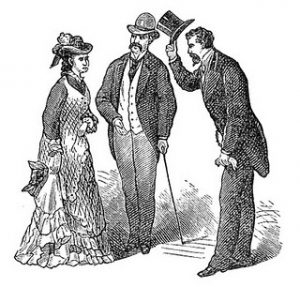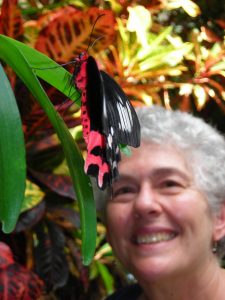I love my dog, and would probably take her with me everywhere. But. Not everyone is comfortable around dogs. Dogs are not comfortable around all people (even if they’re perfectly nice people). It’s often less “personal” and more gut-instinctive, even if both dog and humans are otherwise great to be around. And even when there’s a good fit, it’s not a one-and-done: managing relationships between people and dogs can be complicated, and requires both awareness and honesty on the part of the humans involved. This lesson, unfortunately, came at personal expense, and I’m hoping that telling it will help others NOT have to spend the same emotional coin.
Recently I was traveling with several companions, and my year-old ACD-mix, Maxi. Max had met my companions before, and gotten along with them.What I didn’t know, however, was that one of my companions was uneasy around dogs, due to a negative childhood experience. This led to complications, as my friend did some thing they shouldn’t have done – and wouldn’t have done if they knew dogs better – and Max reacted badly but within natural dog parameters, barking and snapping in defensive mode.
This, of course, upset my friend greatly. Totally understandable – it dragged up past emotional trauma and put them in the wrong headspace to enjoy our travel. And it upset Max greatly, as her boundaries had been violated by someone she had previously trusted.
Fortunately, we were in a position where I could keep Max separate from my friend for the rest of the trip, but it definitely caused some complications, and, unfortunately, tensions.
The worst thing about this was that the situation could have been avoided if my friend had let me know earlier about their long-standing unease around dogs. Ideally, from the first time they were introduced. No dog owner worth their kibble would’ve mocked, or thought less of them for it; in most cases it’s an irrational fear you can’t just wish away.
But what we can do something about is limiting exposure, and clarifying boundaries. In this case, I would’ve kept more distance between human and dog from the beginning, while teaching my friend positive dog management (and in doing so, ideally prevent the negative situation from occurring in the first place.)
But we can’t bloody well do any of that if we don’t know there’s a problem.
Please. If you have a fear of dogs, or simply don’t like them, don’t be afraid to tell your friends with dogs about it. And if you have a dog, make sure to check in with your friends, and make sure they’re comfortable with the dog being around. Literally, an ounce of prevention can solve a pound of problems before they even happen.
(And you/your friend may discover that a little learning can go a long way toward reducing that unease. Which, when you think about it, is a life lesson that doesn’t just apply here.)





 Manners are important. I’m not talking about not chewing with your mouth open (though please, don’t). I’m talking about that old stalwart you heard when you were a kid: Don’t be a Brat. Don’t talk back.
Manners are important. I’m not talking about not chewing with your mouth open (though please, don’t). I’m talking about that old stalwart you heard when you were a kid: Don’t be a Brat. Don’t talk back. A confession: I like to read at bedtime. In this company, that’s nothing unusual. All the sleep hygiene experts say not to, that beds should be used for sleeping and only one other activity. What do they know? I find something deeply comforting about curling up with a good–but not too exciting–book. Perhaps it evokes memories of my mother reading aloud to me, or it’s just “me time.”
A confession: I like to read at bedtime. In this company, that’s nothing unusual. All the sleep hygiene experts say not to, that beds should be used for sleeping and only one other activity. What do they know? I find something deeply comforting about curling up with a good–but not too exciting–book. Perhaps it evokes memories of my mother reading aloud to me, or it’s just “me time.”